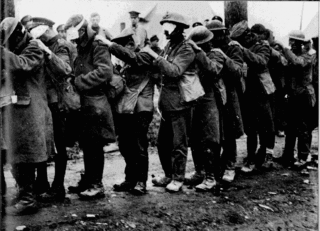Great War reading
 As a literary soul I've always been attracted to the First World War, thanks in large part to the remarkable writing so identified with the era. No other conflict comes close to matching the personal accounts, historical fiction, and - of course - the poetry produced during and since World War I. (The American Civil War comes in a distant second, in my mind, though the writing is formidable for that war, as well.)
As a literary soul I've always been attracted to the First World War, thanks in large part to the remarkable writing so identified with the era. No other conflict comes close to matching the personal accounts, historical fiction, and - of course - the poetry produced during and since World War I. (The American Civil War comes in a distant second, in my mind, though the writing is formidable for that war, as well.)Now, a lot of folks complain that World War I writing is the very reason that the war is so misunderstood and why - like the US Civil War - its causes and battlefield/trench decisions are still being argued over today. Critics complain that diaries and poems produced in the thick of battle have a particular slant (well, obviously), that accounts written immediately after the war were colored by the prevailing political thought of the day, and that oral histories of survivors recorded in the 1960's and 70's are riddled with all sorts of inaccuracies. So, according to many people, I guess we'll never figure the thing out.
And maybe we won't. But I think by reading as many accounts as I can - fiction, non-fiction, poetry, and personal remembrances - that perhaps I can piece together what it was like in the trenches, hospitals, back home in England/America/France/Germany.
I'm always on the look-out for good suggestions for WWI reading material. Currently, I have only a few chapters left in Robert Graves' Goodbye To All That, which I've torn through this week. Though I tried to read it several years ago, it just wasn't the right time, I guess. I find the book a very good detailed description of day-to-day life on the Front.
I think I'll go back and re-read Vera Brittain's Testament of Youth (which I read probably 25 years ago) - it seems a good companion read to Graves' account. After working with Walter's letters over the past two years, I think Brittain's book might be more meaningful to me now.
Other good books about the First World War that I've read so far include:
- Pat Barker's Regeneration trilogy, that includes Regeneration, The Eye at the Door, and The Ghost Road (which won the Booker Prize for Fiction). Regeneration was far and away my favorite of the three, but maybe I need to go back and re-read The Ghost Road.
- The First World War by Hew Strachan. Not your standard history of the war, organized more thematically than chronologically, easy narrative to read.
- The First World War by John Keegan. A comprehensive account of the war; also easy to read.
- Forgotten Voices of the Great War by Max Arthur. Taken from recordings made in the 1960s and 1970s of World War I veterans, nurses, regular citizens - British, American, French, German.
I've had Lyn MacDonald's books recommended to me, so I may dive into those after I finish re-reading the Brittain and Barker books. And I must admit that when I want a nice mystery to settle into, I pull out the latest Charles Todd, whose Scotland Yard Inspector Ian Rutledge is haunted by his World War I experience in the form of Hamish, the soldier he had to execute for cowardice during the war.
I'm open to all suggestions regarding other books that can add to my understanding of the war.

0 Comments:
Post a Comment
Subscribe to Post Comments [Atom]
<< Home